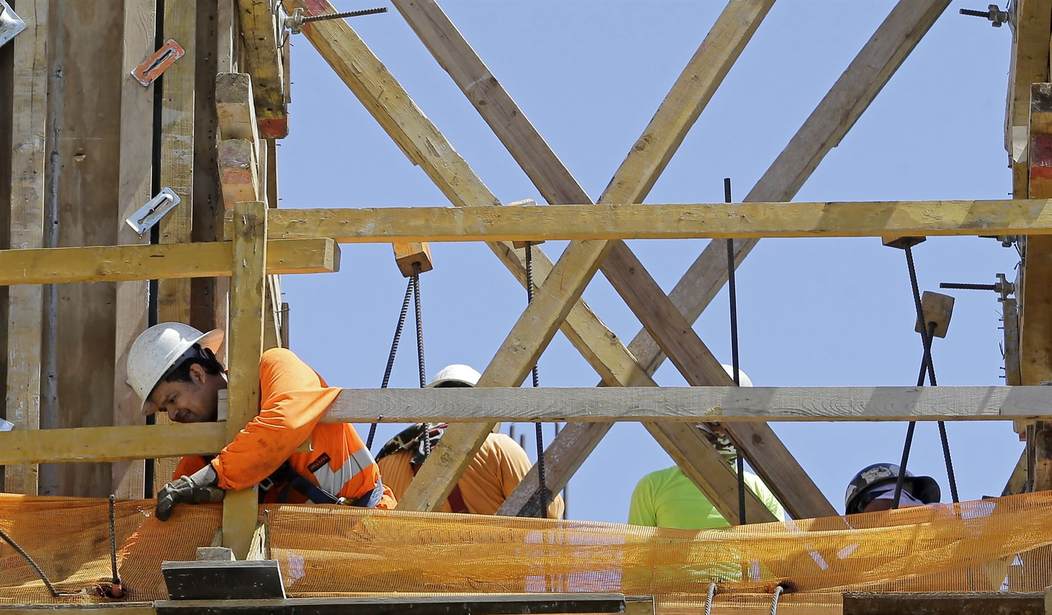Pennsylvania’s union-kowtowing prevailing wage law is an albatross around the neck of not only Keystone State taxpayers but also good governance, free-market competition and economic growth, say scholars at the Allegheny Institute for Public Policy.
The original intent of the prevailing wage laws may have been to protect local laborers from cheap migrant labor, note Frank Gamrat, senior research associate at the Pittsburgh think tank, and Jake Haulk, the institute’s president.
But these days the law simply shields union workers from having to compete with other qualified workers in their own community.
And the resulting “lack of full-throttled competition for government contracts results in higher costs for taxpayers who ultimately pay for this excessive generosity to unions – and to companies that are union shops and get all the work,” the Ph.D. economists say (in Policy Brief Vol. 18, No. 25).
State-level prevailing wage laws require that local wages and benefits – typically the union rate – be paid on government-financed construction projects. The federal counterpart is the Davis-Bacon Act of 1931. The “Davis” of the act was U.S. Sen. James Davis, a Pittsburgh Republican.
Pennsylvania’s prevailing wage law dates to 1961. It was enacted to, purportedly, protect commonwealth workers from out-of-state competition. It applies to all government-financed projects of $25,000 or more.
The state Department of Labor and Industry sets the rate county by county. Never mind that the law does not explicitly prevent using market wages to determine that rate, wages established in collective bargaining agreements are used.
Recommended
And that artificially raises costs.
“The lack of full market competition and the inevitable higher costs created by (the) prevailing wage may have been a contributing factor in Pennsylvania’s poorly rated infrastructure,” Gamrat and Haulk say.
“If projects are unnecessarily expensive, government(s) at both the local and state level will be unable to carry out as many projects as they would in the absence of the extra expense created by prevailing wages.”
Consider two examples:
In 2017, the average statewide painters wage was $20.30 an hour. It was $18.84 for construction laborers. But in April 2016, on projects at East Stroudsburg University, painters were paid premiums of 64 percent more and 25 percent more, respectively, because of Pennsylvania’s prevailing wage law.
Fringe benefits also were far above the norm for such occupations.
Then there are state highway projects.
Per the Pennsylvania Department of Transportation’s 2017 annual report, $2.57 billion was spent on 703 bridge and road projects. “Even if the labor compensation savings from doing away with (the) prevailing wage were 10 percent … PennDOT would have an extra $257 million to spend on more projects,” Gamrat and Haulk calculate.
And that’s a low figure; most research pegs such savings at between 10 and 25 percent.
“In a state that seems to struggle every year to fund its budget and where school districts are having to raise taxes steadily to meet obligations including for unnecessarily expensive building projects, hundreds of millions in savings would certainly be welcome,” the institute scholars say.
Just this month, Michigan repealed its prevailing wage law, now one of 24 states without such a statute. Savings there will be an estimated $400 million annually.
The prevailing wage law is cut from the same cloth as binding arbitration, teacher and transit worker strikes and the lack of a right-to-work law.
“Pennsylvania is losing ground steadily as a result,” Gamrat and Haulk say. “The state’s workforce is declining while nationally the labor force is climbing and the number of the state’s residents working has also been sliding of late” because of this “deeply entrenched anti-free market ideology that stifles growth.”
“Michigan did the right thing by shedding this union-backed wage mandate,” the Allegheny Institute researchers say. “Now it’s time for Pennsylvania to do the same.”
























Join the conversation as a VIP Member